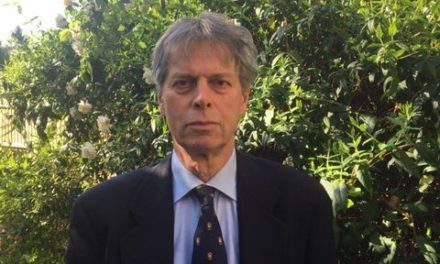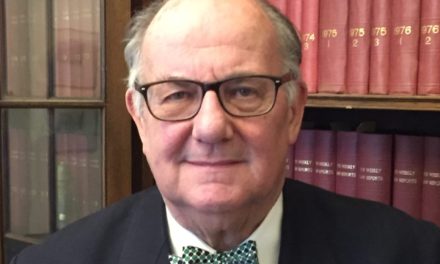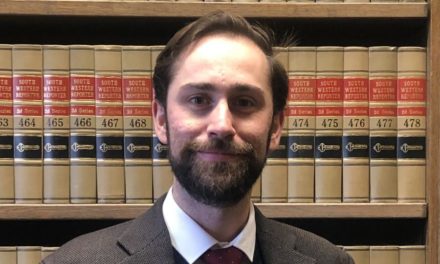
Master David Blunt had an extensive and wide-ranging national and international civil practice with particular expertise in construction and engineering, information technology, and professional negligence. He served as Chairman of the Inn’s Students’ & Barristers’ Affairs Committee from 2007-2012 and was the Chairman of the Burton Pupillage Information Committee, established in 2012.
The Supreme Court`s decision in R (on the application of Miller) v The Prime Minister [2019] UKSC 41, that the Prime Minister`s advice to the Queen in August 2019 that Parliament should be prorogued, gave rise to some controversy. Amongst other criticisms, a number of commentators expressed the view that the court`s conclusion in relation to the justiciability of the issue was ‘novel’ or ‘surprising’. Some politicians stated that it was simply wrong, and it appears that perception is fuelling suggestions that the government might legislate to limit the powers of the courts.
In my view, the ruling on this issue was neither novel or surprising, as is illustrated by the now forgotten case of R v the Home Secretary ex parte McWhirter (The Times, Tuesday 21 October 1969), which concerned proposed changes to constituency boundaries thought to favour the Opposition (the Tories) by between ten to 20 seats. Needless to say, this was an extremely hot political potato at the time.
The proposed changes were recommended in a 1967 report of the Boundary Commission for England. Section 2(5) of the House of Commons (Redistribution of Seats) Act 1949 provided:
As soon as may be after a Boundary Commission have submitted a report to the Secretary of State under this Act, he shall lay the report before Parliament together …with the draft of an Order in Council for giving effect, whether with or without modifications, to the recommendations contained in the report.
When, by June 1968, the report had not been laid before Parliament, Quinton Hogg MP tabled a Motion in the House of Commons calling on the UK Home Secretary James Callaghan to implement the recommendations in the report. The Wilson government used its majority to ensure that the Motion was rejected.
A Mr McWhirter then applied to the Divisional Court for an order of mandamus requiring Mr Callaghan to lay the report before Parliament. I was one of the Government`s legal team instructed to oppose the application.
…in later life Mr Callaghan was ashamed of this incident – which his official biographer described as ‘a simple gerrymandering exercise by the Labour Government’.
In spite of the highly political nature of its subject matter, the Government did not contend that the application was not ‘justiciable’, though other points were taken. In the event the Court was informed that the Home Secretary did intend to lay the report before Parliament, counsel for Mr McWhirter asked for costs in Mr McWhirter`s favour, and Lord Chief Justice Parker expressed reluctance to devote a day and a half to the issue of costs. The court adjourned briefly, Mr McWhirter agreed to withdraw his application and the Government agreed to make an ex gratia payment to him – its purpose and amount being unspecified. This brought the legal proceedings to an end.
The fact that no justiciability point was taken by the Government might be dismissed on the basis of my lack of learning and inexperience (I had been Called to the Bar less than two years before) had I been alone, but the whole team consisted of the Attorney General Sir Elwyn Jones QC, a veteran politician, the Treasury Junior Gordon Slynn, later Advocate General to the European Courts of Justice and a judge of the High Court, the Court of Appeal, and the House of Lords, and John Bailey, later the Treasury Solicitor.
Mr Callaghan did lay the report before Parliament, together with a draft of the prescribed Order in Council, and then, following a debate (HC Deb 12 November 1969 vol 791 cc 428 – 555), used the Government`s majority to reject the Order. It has been said that in later life Mr Callaghan was ashamed of this incident – which his official biographer described as ‘a simple gerrymandering exercise by the Labour Government’.
I do not recall any academics or other commentators suggesting at that time that Mr McWhirter`s application was not justiciable. Likewise, no one suggested that the courts could interfere with the ‘proceedings’ in Parliament. The points taken reflected the general understanding, held at that time by lawyers and parliamentarians alike, as to the boundary between the courts and Parliament – established in the constitutional settlement substantially concluded by the end of the 17th Century. I know of nothing which has occurred since 1969 to call in to question what was then the received view.
On a personal level, the case was a quite a dizzying experience – being in a room with the Attorney General on the telephone to the Prime Minister, and, at that age, being asked my opinion as to the likely outcome of the pending application. It is one of the excitements of the Bar that there is always the chance of being catapulted into a case of unexpected interest and significance, even at a young age.




